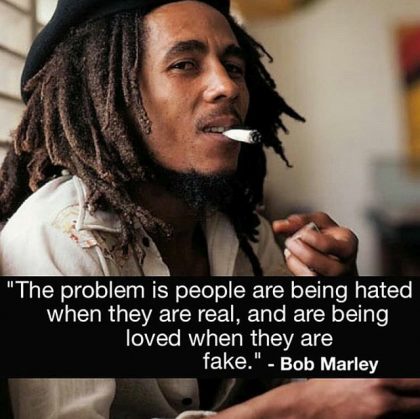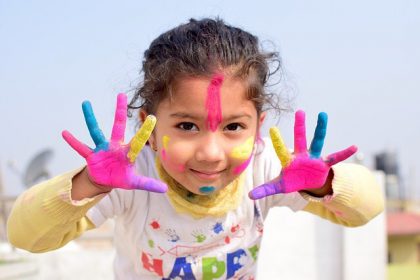 Why is it so difficult to take responsibility for what we do wrong, but easy for what we do well?
Why is it so difficult to take responsibility for what we do wrong, but easy for what we do well?
At least part of the answer can be found in this quote from Bob Marley:
 “The problem is people are being hated when they are real, and are being loved when they are fake.”
“The problem is people are being hated when they are real, and are being loved when they are fake.”
Maybe this is the reason why a child hides his hand when caught writing on the walls, and also why an employee denies having done something wrong when there is no other possibility.
We are hesitant to take responsibility for things which might prejudice us. Since we are small we are accustomed to being rewarded when we do something “good” and reprimanded when we do something “bad.” Instead of being conditioned to being praised only for results, it would be better to positively reinforce telling the truth.
Can there be anyone in the world who has not done wrong at some point in time? Of course not! Instead of showing our children to never make mistakes, wouldn’t it be better to have them understand that being responsible for their actions can lead them to learn and improve?
Is it possible for a baby to learn without falling?
Can an employee possibly know what to do before he is trained?
We create almost impossible expectations when we don’t accept errors from others. In fact, in many cases it is from our errors that we learn our most important lessons. It would be ideal to learn from the failures of others, but it’s not always possible.
Society tends to reward results more than the process. Taking responsibility for our actions isn’t always convenient in the moment, but it is a matter of honor, and in time we can become better by doing so.  While it can hit us like a bucket of cold water, our environment is a reflection of our society.
While it can hit us like a bucket of cold water, our environment is a reflection of our society.
If we as individuals don’t take responsibility for what we do, how can we expect others to do so? If we want to modify something, we must first modify ourselves. Taking responsibility for our actions is a good start.
∞ Rob McBride ∞
LL IV 35

